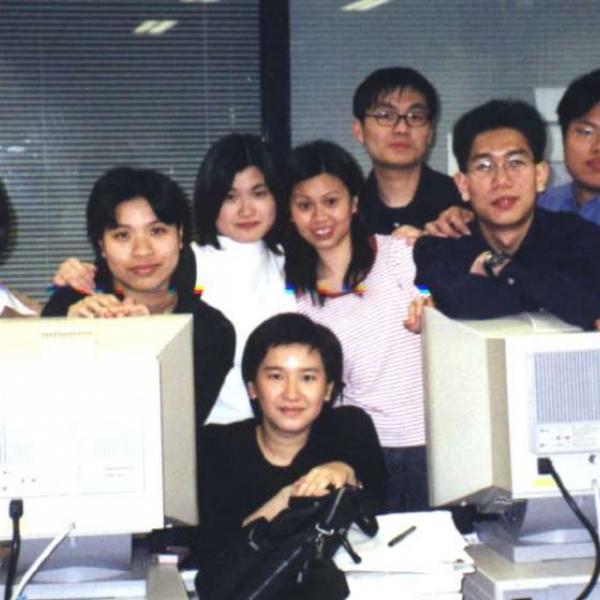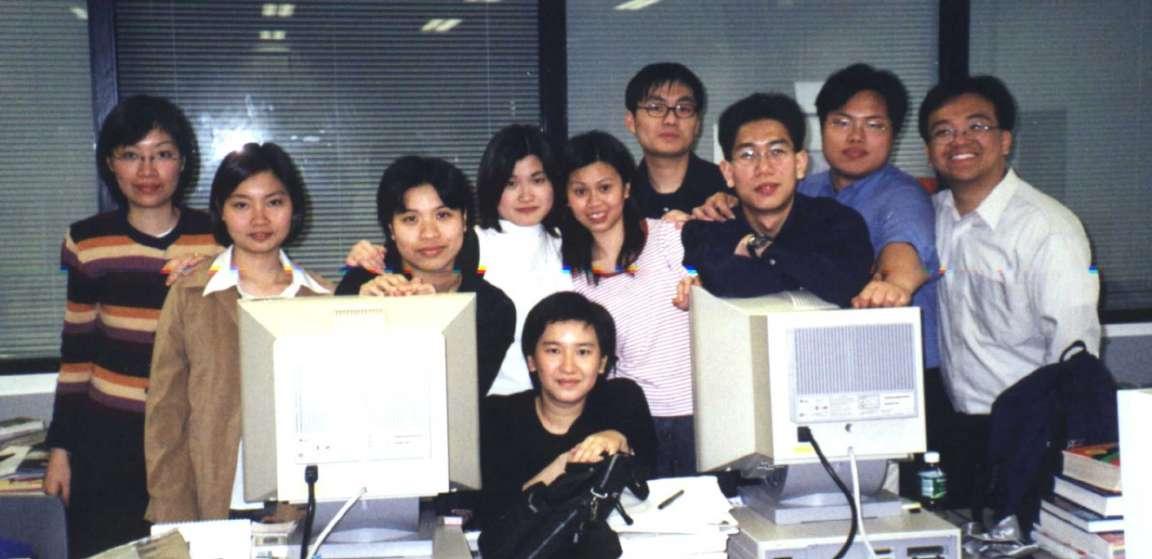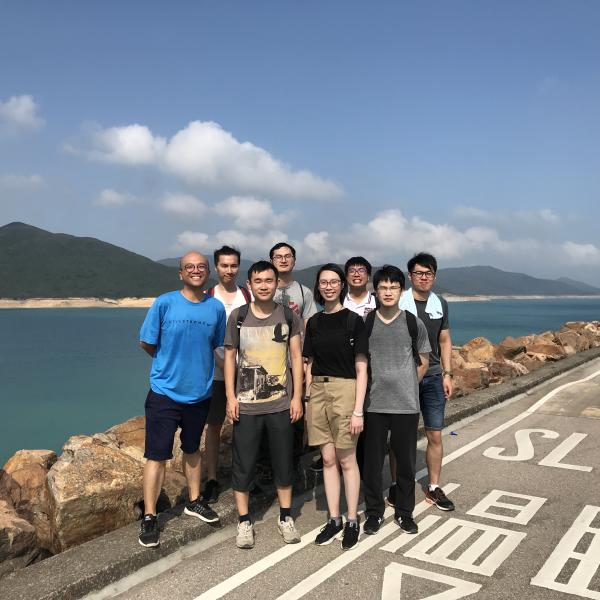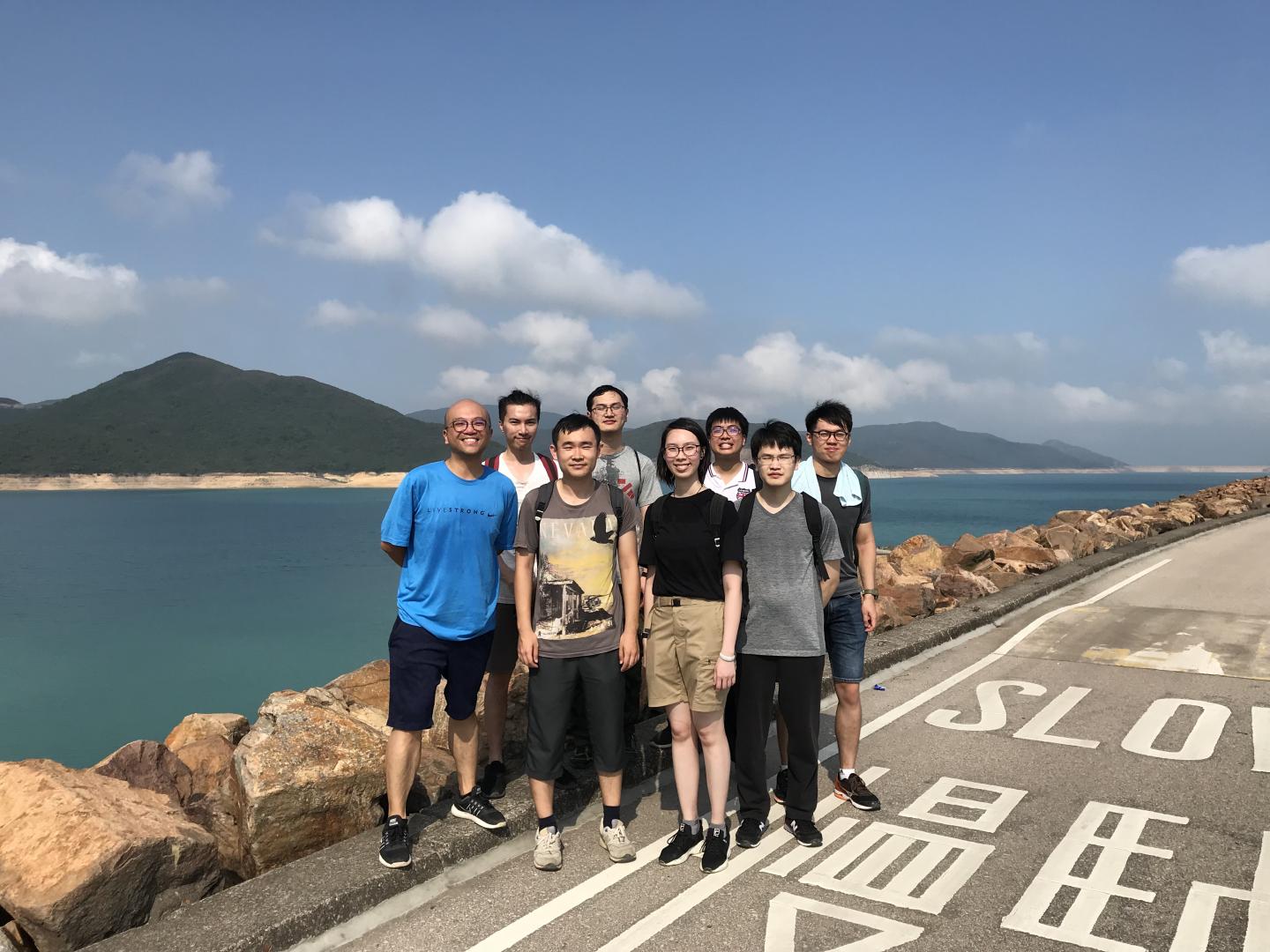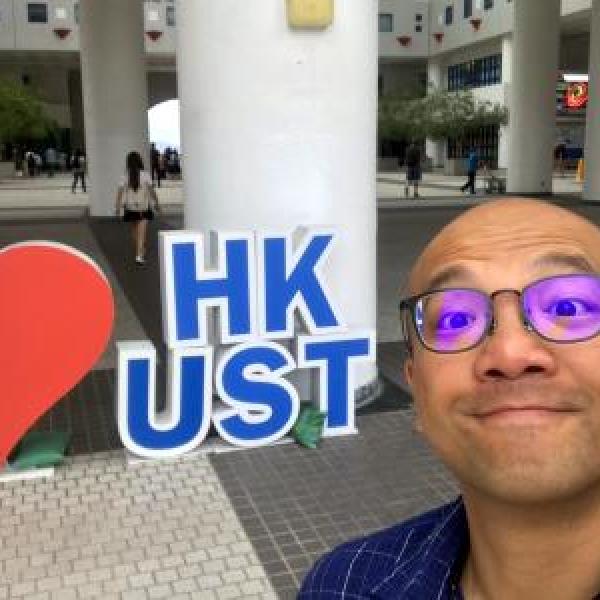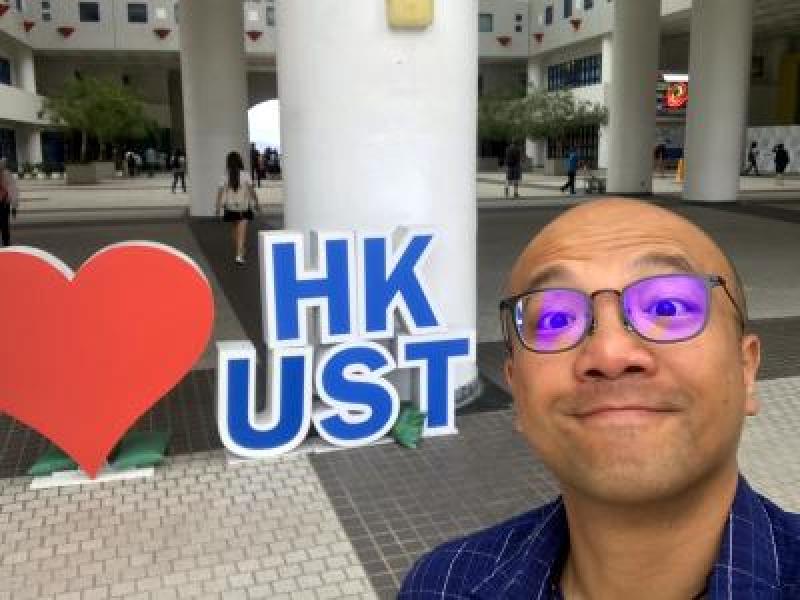A Mathematician’s True Calling
The year was 1996, and HKUST had just been founded a few years ago. Tim LEUNG Shing-Yu, a freshman studying mathematics, was not quite sure what opportunities were lying ahead.
“I remember vividly I was overwhelmed by the sheer number of people on campus on my first day here. I had no idea what it was like to study at a university, let alone my future career. The only thing I knew for sure was my fascination for applied mathematics,” Prof. Leung, now Professor and Associate Dean of the School of Science at HKUST, recalls.
He had three years of engaging and dynamic university life during his undergraduate years and went on to complete an MPhil degree. When it was time to graduate, he was anxiously awaiting his job offer as a teacher, just as many of his classmates did.
“At the time, we all thought the only career for those who studied math would be teaching at a local secondary school. That basically would set a lot of people for life, and I was too waiting for my offer letter,” Prof. Leung said.
Luckily for Prof. Leung and HKUST, that offer letter did not arrive on time. Not before then-head of the Department of Mathematics, Prof. CHENG Siu-Yuen, spotted the young man’s talent and potential, and advised him to reconsider his options and pursue further graduate studies in the US.
“Prof. Cheng was adamant that I should apply for further graduate studies in the US,” Prof. Leung laughs. “Since overseas exchange was not common at the time, I had never been to anywhere during my undergraduate studies. So I told myself that I could treat it as my own belated exchange.”
As things turn out, a change of scenery was all a young and ambitious Tim needed to realize his enthusiasm for math. From 2001, Prof. Leung would spend the next eight years in the US, not only completing his PhD in math at UCLA, but also conducting three more years of post-doc work at UC Irvine. At one point, he thought he would never leave the US.
“When I completed my post-doc studies, I began to look for a full-time teaching position everywhere, but Prof. Cheng reached out again and asked whether I would be interested to work at HKUST,” Prof. Leung said. “I was not sure if I would ever be able to adjust to the life in Hong Kong again, especially after spending almost a decade in California; but how could I say no to my alma mater? And so I came home.”
More than just teaching math
Since returning to HKUST in 2009, Prof. Leung has always been looking for new challenges in teaching, mentoring, course-building, and of course, his own research. At the same time, he remains methodological in his approach—there would be no fancy powerpoint slides in his math lectures, only the good old whiteboard and note-taking.
“The way I conduct my classes is kind of old school but works well for math students,” Prof. Leung smiles. “This is how I go through with my students together: pull out the whiteboard, solve problems, do the coursework, mid-terms, and finals, rinse and repeat. Only by then, I believe, would one be able to claim the knowledge we teach in class his own. This is how we learn math. You get ahold of the basics, and we go from there.”
With the switch from a three-year to a four-year undergraduate system since 2009, a new emphasis has been put on broadening the horizons of undergraduates with minors and cross-disciplinary selective courses—a new challenge that he has embraced with both arms.
“Today, our emphasis is to get students to show initiative and learn on their own at an early stage,” Prof. Leung noted. “Our UROP program, for example, would be really challenging for my generation, where undergraduate students would be asked to conduct research on their own. But now? I am often surprised by the results and vigor shown by students I mentor in the program. They have learned much by taking classes in other disciplines, which probably stimulated their response to take initiatives in their own pursuit.”
UROP, the Undergraduate Research Opportunities Program, is a signature program of HKUST that provides early hands-on research experience to undergraduate students since its launch in 2005.
“I am very pleased to see the results and different career paths developed by some of the brightest students I have had mentored via UROP over the years,” Prof. Leung notes. “My first research student is now an assistant professor at HKBU, and he showed a lot of potential when he did UROP and then MPhil with me, where he would go on and win a Croucher Scholarship to pursue his PhD at the University of Oxford.”
The joy of nurturing math talent
And increasingly, the academia is no longer the only path math majors would pursue. Nurturing pillars of society is sure to be the most rewarding part of his career at HKUST.
“While I am proud to see some of my students land teaching and faculty positions in other universities in Hong Kong, I am also glad that many students take off their careers across a multitude of industries like IT, business, finance, and even running a start-up,” Prof. Leung says.
“Other PhD students, whom I have invited to share their career stories recently, have also led successful careers in investment banking and cryptocurrency,” Prof. Leung continues. “Did I teach them how to invest? Of course not. The fact is the skills they gained from vigorous training in applied math is transferrable. The sense of interpreting numbers, deciding strategies and algorithms can be applied in many industries. Employers are discovering that talented young minds with a solid foundation in math can easily adapt to different working environments and job duties.”
“I am now mentoring six graduate students, four at the MPhil and two at the PhD level, which is the largest group of students I have had since I joined HKUST,” Prof. Leung says. “From my earlier teaching days to now, I realized that my job is not only to teach knowledge, but I also have to put myself into students’ shoes and help them to understand the materials better,” adds Prof. Leung. In recent years, Prof. Leung has taken more new challenges in strides, from taking part actively in student recruitment to organizing the renowned Hang Lung Mathematics Award, in which he finds such diversity in working duties to be a joy and keeps his mind occupied in a variety.
To stir interest in STEM education and share his passion for math and science, Prof. Leung is also running his personal blog and YouTube channel, mixing in ways and approaches where younger students would find easy access to him. Teaching, indeed, is not limited to the conventional classroom setting.
“When I was young, I was probably wrong to think that I had only a limited set of options,” Prof. Leung says. “Now, we want to make sure everyone knows that the sky is the limit, no matter what you study. Put in the work, and expect the best.”

